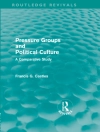Investigating the essential role that the postal system plays in American democracy and how the corporate sector has attempted to destroy it.
’With First Class: The U.S. Postal Service, Democracy, and the Corporate Threat, Christopher Shaw makes a brilliant case for polishing the USPS up and letting it shine in the 21st century.’—John Nichols, national affairs correspondent for The Nation and author of Coronavirus Criminals and Pandemic Profiteers: Accountability for Those Who Caused the Crisis
’First Class is essential reading for all postal workers and for our allies who seek to defend and strengthen our public Postal Service.’— Mark Dimondstein, President, American Postal Workers Union, AFL-CIO
The fight over the future of the U.S. Postal Service is on. For years, corporate interests and political ideologues have pushed to remake the USPS, turning it from a public institution into a private business—and now, with mail-in voting playing a key role in local, state, and federal elections, the attacks have escalated. Leadership at the USPS has been handed over to special interests whose plan for the future includes higher postage costs, slower delivery times, and fewer post offices, policies that will inevitably weaken this invaluable public service and source of employment.
Despite the general shift to digital communication, the vast majority of the American people—and small businesses—still rely heavily on the U.S. postal system, and many are rallying to defend it. First Class brings readers to the front lines of the struggle, explaining the various forces at work for and against a strong postal system, and presenting reasonable ideas for strengthening and expanding its capacity, services, and workforce. Emphasizing the essential role the USPS has played ever since Benjamin Franklin served as our first Postmaster General, author Christopher Shaw warns of the consequences for the country—and for our democracy—if we don’t win this fight.
Praise for First Class:
Piece by piece, an essential national infrastructure is being dismantled without our consent. Shaw makes an eloquent case for why the post office is worth saving and why, for the sake of American democracy, it must be saved.’—Steve Hutkins, founder/editor of Save the Post Office and Professor of English at New York University
’The USPS is essential for a democratic American society; thank goodness we have this new book from Christopher W. Shaw explaining why.’—Danny Caine, author of Save the USPS and owner of the Raven Book Store, Lawrence, KS
’Shaw’s excellent analysis of the Postal Service and its vital role in American Democracy couldn’t be more timely. … First Class should serve as a clarion call for Americans to halt the dismantling and to, instead, preserve and enhance the institution that can bind the nation together.’—Ruth Y. Goldway, Retired Chair and Commissioner, U.S. Postal Regulatory Commission, responsible for the Forever Stamps
’In a time of community fracture and corporate predation, Shaw argues, a first-class post office of the future can bring communities together and offer exploitation-free banking and other services.’—Robert Weissman, president of Public Citizen
Spis treści
CONTENTS
Foreword by Ralph Nader
Introduction
CHAPTER 1: PRIVATIZATION
– The Postal Monopoly
– Service First
– Eliminating Government
CHAPTER 2: DEREGULATION
– Network Industries
– Foreign Post Offices
– Nineteenth-Century America
– Profit as King
CHAPTER 3: DEMOCRACY
– Founding Principles
– Newspapers and Magazines
– Books and Nonprofits
– Vote-by-Mail
CHAPTER 4: COMMUNITY
– Heart of the Community
– Closing the Hub
– Relocation
– History and Identity
CHAPTER 5: CUTBACKS
– Mail Volume
– Cutting Service
– Major Mailers
– The Great Recession
– Service Matters
CHAPTER 6: COMPETITORS
– Undermining Delivery
– Corporate Power
– Postal Package Delivery
– Auctioning Away Trust
CHAPTER 7: WORKERS
– Postal Heroes
– The Postal Workplace
– Rising Inequality
CHAPTER 8: GOVERNANCE
– Reorganization
– Postal Governance
– Governance Reform
– Post Office Consumer Action Group
CHAPTER 9: The Future
– Essenital Infrastructure
– Spurring Innovation
– Tomorrow’s Post Offices
– Postal Banking
– Our Postal Commonwealth
Notes
Index
About the Author
O autorze
Christopher W. Shaw is an author, historian, and policy analyst. He has a Ph.D. in History from the University of California, Berkeley, and is the author of Money, Power, and the People: The American Struggle to Make Banking Democratic (University of Chicago Press, 2019) and Preserving the People’s Post Office (Essential Books, 2006). His research on the history of banking, money, labor, agriculture, social movements, and the postal system has been published in the following academic journals: Journal of Policy History, Journal of Social History, Agricultural History, Enterprise & Society, Kansas History, and Journalism History. Shaw was formerly a project director at the Center for Study of Responsive Law. He has worked on a number of policy issues, including the privatization of government services, health and safety regulations, and electoral reform. He has appeared in such media outlets as the Associated Press, National Public Radio, Washington Post, Christian Science Monitor, New York Post, Village Voice, Philadelphia Inquirer, and Buffalo News, among others. He lives in Berkeley, CA.
Named by The Atlantic as one of the hundred most influential figures in American history, and by Time and Life magazines as one of the most influential Americans of the twentieth century, Ralph Nader has helped us drive safer cars, eat healthier food, breathe better air, drink cleaner water, and work in safer environments for more than four decades. Nader was instrumental in the creation of the Occupational Safety and Health Administration (OSHA), the Environmental Protection Agency (EPA), the Consumer Product Safety Commission (CSPC), and the National Highway Transportation Safety Administration (NHTSA). Many lives have been saved by Nader’s involvement in the recall of millions of unsafe consumer products, including defective motor vehicles, and in the protection of laborers and the environment. By starting dozens of citizen groups, Ralph Nader has created an atmosphere of corporate and governmental accountability. Nader’s recent books include Breaking Through Power with City Lights, Unstoppable, and The Good Fight. His Animal Envy, A Parable was published by Seven Stories Press in the fall of 2016. Nader writes a syndicated column, has his own radio show, and gives lectures and interviews year round.












